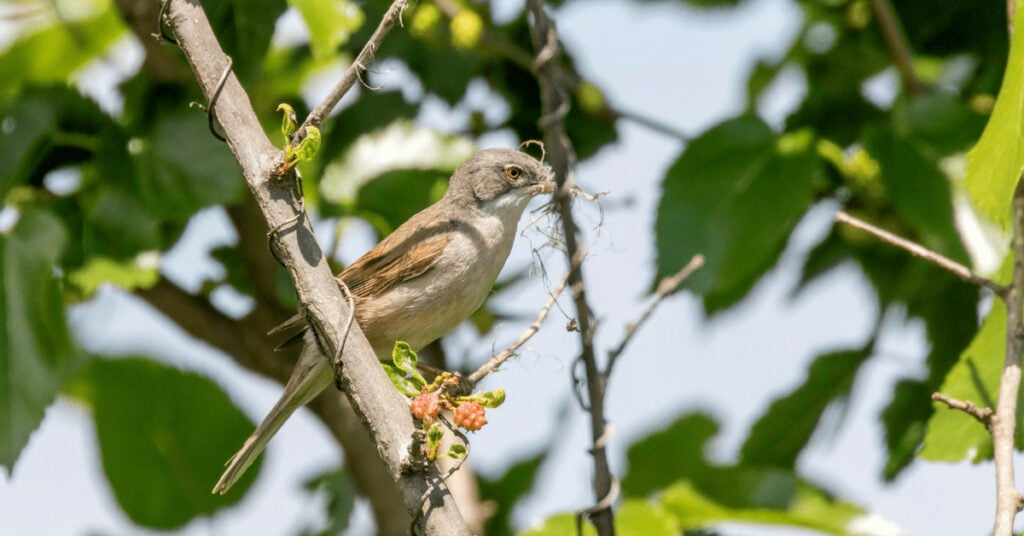Co-authors: Natalie Macawaris, Anika Funk
3 minutes read
Without birds, forest ecosystems as we know them would not exist. Among the many integral roles they play, birds act as seed dispersers, pollinators, and pest controllers. They are also surrogates of biodiversity, helping humans measure and monitor the richness of species and the ecological integrity of different habitats around the world.
In tropical regions like the Philippines, bird populations point to the significant impact of deforestation on biodiversity. Tree cutting, unsustainable land use such as converting forest land for agricultural purposes, and unsustainable farming practices contribute to the continuous destruction of habitats for birds. There is also strong evidence that deforestation or loss of forest cover in the country results in soil degradation and erosion, which eventually leads to nutrient loss and lower crop yields.
Through its experience creating business solutions to poverty in agri-food market systems, MEDA – Mennonite Economic Development Associates – has found that by preserving healthy soils, agri-food entrepreneurs and enterprises in the Philippines achieve higher productivity and can secure additional income that fosters decent work opportunities. Biodiversity and agricultural commercialisation that creates decent work are thus not at odds but, instead, must exist in harmony.
The cacao and biodiversity connection in Mindanao
In the Davao region of Mindanao, in the Philippines, cacao trees cover more than 20,000 hectares and are planted alongside fruit and forest trees that serve as an important habitat for birds located in the area. An in-depth study in Mindanao showed a significant correlation between bird biodiversity and the condition of forest ecosystems. Similar studies have found that bird biodiversity has a direct connection to the productivity of cacao farming by supporting pollination and fertilisation efforts – and to the ability of farmers and ecosystems to adapt to and mitigate climate change impacts. These findings present an opportunity to enhance both biodiversity and decent work for smallholder cacao farmers.
Carbon credits offer new opportunities for income and preserving biodiversity
Given the critical intersection between biodiversity and cacao productivity, MEDA is working in Davao to maintain ecological integrity within and around cacao farms and to create decent work opportunities for smallholder farmers in the cacao food system. Under its Resilience and Inclusion through Investment for Sustainable Agrikultura (RIISA) project funded by Global Affairs Canada, MEDA recently partnered on a new carbon credit initiative with Kennemer Foods International.
The innovative partnership aims to improve smallholder farmer incomes from their cacao production through training and supply chain support for introducing environmentally sustainable and climate-smart agricultural practices that encourage the protection of bird habitats and the conservation of bird populations. At the same time, the partnership supplements farmers’ income with additional revenues from climate funds.
Climate funds are earned as cacao farmers plant endemic tree species with cacao as the main economic crop, sequestering carbon that is then sold as credits on the voluntary carbon market to international buyers looking to offset greenhouse gas emissions. All earnings are shared with participating farmers in Kennemer’s “MinTrees” project – which was verified by VERRA through voluntary carbon standards – often through advance payments.
Incentivizing change to protect biodiversity and create decent work
The combination of increased income from improved cacao productivity and climate revenue aims to incentivize smallholder cacao farmers to engage in environmentally responsible management, protecting the surrounding ecosystems and bird biodiversity. Farmers can use the additional revenues they earn to enhance their cacao yields by investing in seedlings, farm tools, or fertiliser, and for basic needs such as food and education.
While the carbon credit initiative is in its early stages, many farmers already recognize the importance of the initiative. “We see the benefits from taking care of our cacao farm and improving the vegetation,” shares Susan Uyanguren, who leads a partner farmers’ association. “We can protect the biodiversity in the soil and other animals with the planting of forest and fruit trees in the cacao farms.”
Ensuring birds can play their important roles in Mindanao’s forests has wide-reaching impacts, including on creating a healthy ecosystem and helping to secure decent work opportunities and income for cacao farmers. However, incentives may be needed to support smallholder farmers who often lack the resources needed to initially implement these changes for long-term success. Carbon credits can offer a pathway forward for the livelihoods of cacao farmers – and for protecting the biodiversity of the birds they rely on to succeed.


















